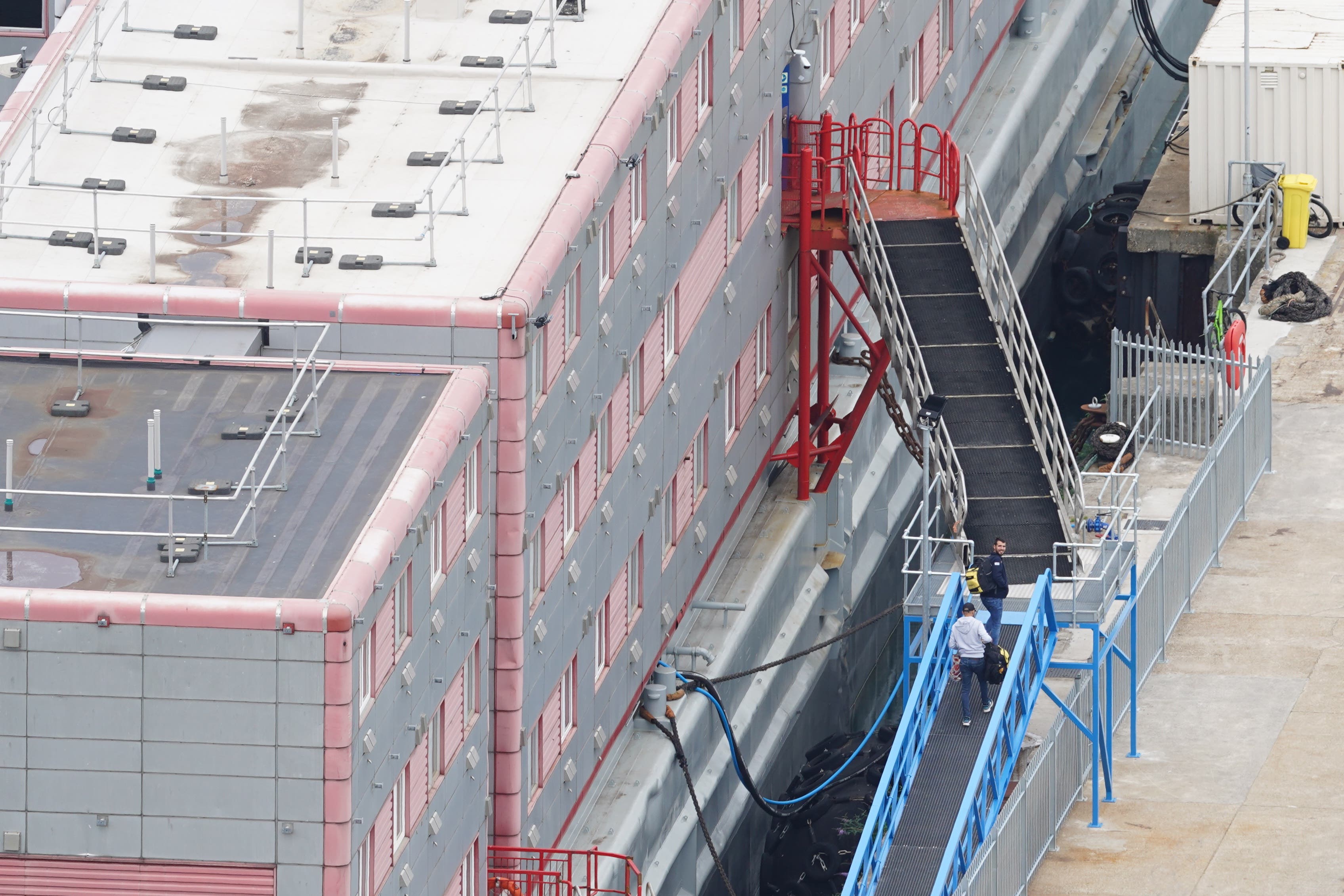What will life be like for migrants aboard the Bibby Stockholm barge?
The barge, docked in Portland Port, Dorset, is the first procured by the Government to house asylum seekers while their claims are processed.

Your support helps us to tell the story
From reproductive rights to climate change to Big Tech, The Independent is on the ground when the story is developing. Whether it's investigating the financials of Elon Musk's pro-Trump PAC or producing our latest documentary, 'The A Word', which shines a light on the American women fighting for reproductive rights, we know how important it is to parse out the facts from the messaging.
At such a critical moment in US history, we need reporters on the ground. Your donation allows us to keep sending journalists to speak to both sides of the story.
The Independent is trusted by Americans across the entire political spectrum. And unlike many other quality news outlets, we choose not to lock Americans out of our reporting and analysis with paywalls. We believe quality journalism should be available to everyone, paid for by those who can afford it.
Your support makes all the difference.Migrants have begun arriving on the Bibby Stockholm barge docked in Portland off the coast of Dorset as part of a government plan to house asylum seekers while their claims are processed.
After a series of delays, the first residents boarded on Monday amid continued safety and overcrowding fears centring on plans to house about 500 people on the ship.
Here PA looks at the living conditions they can expect on the controversial barge.
– What will their rooms be like?
Most of the 222 bedrooms have twin bunk beds, with cupboard space, a desk, en-suite bathroom, heating and windows which open.
But there are also 20 larger rooms which would sleep four people, and two rooms housing six people.
– What entertainment will they have?
The bedrooms all have televisions which the operator was told to disconnect but were too costly to remove so can be used only as monitors.
Instead, residents will be encouraged to socialise or watch programmes and films in one of four communal TV rooms, and can also learn English in a classroom and worship in a dedicated space.
A small number of laptops are also available and there is wi-fi throughout the barge.
– What is on the menu?
Migrants can expect a varied diet to be served in the barge’s canteen by Dubai-headquartered Connect Catering Services which serves the oil and gas, offshore wind and maritime industries around the world.
A sample menu provided to journalists included spaghetti with meatballs, roast turkey, Irish stew and beef pie.
A selection of snacks will be available 24 hours a day.
– Will they be able to exercise?
Migrants will be able to use a gym equipped with treadmills, weights, rowing machines and exercise bikes.
Team sports, including volleyball, basketball, netball and football, can be played in one of two outside courtyards
– Will migrants be able to leave the boat and visit the mainland?
The migrants will not have a curfew but are expected to sleep onboard overnight.
They will be able to use an hourly bus service with stops in the surrounding area between 7am and 11pm, with migrants also free to leave on foot if they choose once outside the port compound.
But inside the perimeter, they must board a shuttle bus to be taken from the barge to the gate because of safety rules inside the working port.
– How many staff will be on board?
In total, there will be around 60 staff on board, including cooks and cleaners.
The barge is being run by Landry and Kling, a sub-contractor of Corporate Travel Management (CTM) which has also managed vessels in Scotland housing Ukrainians.
There will also be round-the-clock security on the site, consisting of 18 guards trained to military standard taking shifts in groups of six.
The security staff will be backed up by CCTV surveillance, and police if needed.
– How long will migrants be on board?
With an initial 18-month contract for the barge being kept under review, asylum seekers will spend up to nine months on board.
But officials gave admitted they could end up back in hotels if no other suitable alternative accommodation was identified by the end of that time period.
– What support will Dorset Council receive?
Dorset Council is receiving £3,500 per occupied bedspace on the Bibby Stockholm, with additional funding provided to local NHS services and police, the Home Office said.
It is understood the council has also received almost £380,000 in a one-off grant to help support local charity and voluntary organisations provide services on board.